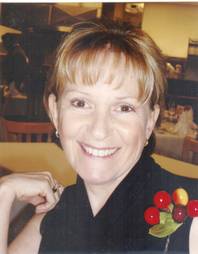Published Thursday, April 30, 2009 | 3:45 p.m.
Updated Saturday, May 2, 2009 | 6:40 a.m.

Stefani Evans
We are not immortal, and each of us will someday become the ancestor on the wall. I write about mortality because most genealogists collect paper. Lots of paper.
By the time we prove our final ancestor we will accumulate boxes and binders full of paper. Where will our work go? Some few genealogists have family members who are willing to receive their collections. But most genealogists do not, and they must seek other custodians for their materials. The two largest genealogical libraries emphasize that organization matters. If you would like to preserve your work and make it available to future researchers, they say, assemble it into a format that researchers can use.
The world's largest genealogical library, Salt Lake City's Family History Library (FHL), does not accept genealogical collections in file boxes or loose unorganized papers. The FHL is not a repository, such as a state archives, and it does not have space to store every type of personal genealogical work product. The FHL gladly accepts electronic GEDCOM files (Genealogical Data Communication), a standard format that all family tree programs can read and produce; the library will incorporate donated GEDCOM files into the FamilySearch Pedigree Resource File database (www.familysearch.org). The library accepts written, indexed, family histories with title page and table of contents. With the author's permission, the FHL will digitize family histories for access through the Brigham Young University (BYU) Family History Archives Web site, and will bind a copy for patron use in the FHL. Carolyn Bellamy in the Donations unit emphasizes that compiled family histories must be "camera-ready" as staff cannot organize and edit donated materials.
One library will take your unindexed genealogical collection. The Allen County Public Library (ACPL) in Fort Wayne, Ind., houses the second-largest genealogical collection in the United States, and seeks such collections. However, Steve Myers in the genealogy center points out that the better you organize your collection, the quicker the library can process it and get it on the shelves. The ACPL will not index your collection; volunteers will broadly organize volumes behind cover sheets. You will make your collection more user friendly if you include a table of contents for each binder or file.
Genealogist Richard A. Pence of Fairfax, Va., exemplifies the proactive stance we should emulate if we wish our work to outlive us. Pence, charter inductee into the Genealogy Technology Hall of Fame, co-authored the first book on using computer technology in genealogy, "Computer Genealogy." Pence's heirs did not want to take custody of his research, and he offered his collection to the ACPL. The ACPL recently accepted Pence's collections. His database, "Pence Descendants," holds Pence's one-name study representing more than 40 years of research. His main database contains nearly 18,000 Pences and serves to index narrative files on each individual. This database and associated text files will shortly be online and available to researchers everywhere. Pence's collection also includes some 12 linear feet of correspondence, research notes, documents, etc. (mostly predating 1995) and thousands of electronic files, many with documents and photos attached (post-dating 1995). These, along with his other databases, such as a collection of 1,200 Pence obituaries and a database containing more than 6,400 Pence marriages, will be available online or to on-site researchers.
Both libraries urge genealogists to organize their papers. Thank you, Richard Pence, for demonstrating how we might allow others to benefit from our work. Thanks also to Carolyn Bellamy and Paul Nauta of the FHL and to Steve Myers at the ACPL.
Stefani Evans is a board-certified genealogist and a volunteer at the Regional Family History Center. She can be reached c/o the Home News, 2275 Corporate Circle, Third Floor, Henderson, NV 89074, or [email protected].

Join the Discussion:
Check this out for a full explanation of our conversion to the LiveFyre commenting system and instructions on how to sign up for an account.
Full comments policy